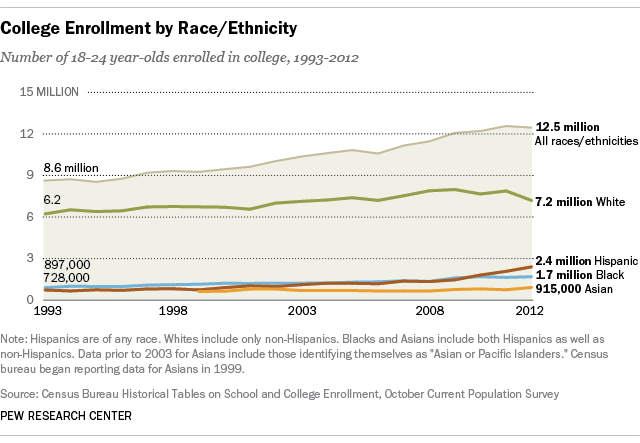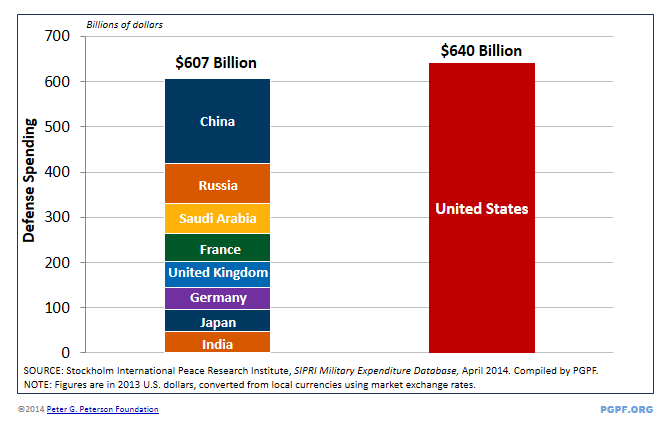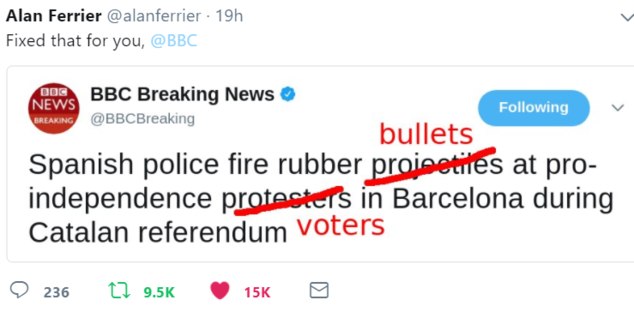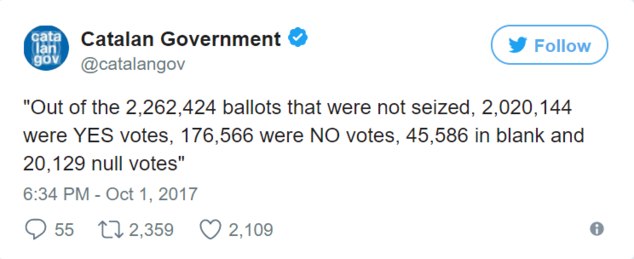-
Any Platonists?
Even more interesting to me, and relevant via your summoning of Paul to the conversation, is whether religious thought and belief was implicitly developed to combat this emotive/intuitive "gut feeling" and the actions that follow in order to maintain a society with a diverse population. In other words, when our intuitive reactions to others are divisive and threaten the social order, did religion pop-up to glue us back together?
Paul, the other apostles and their followers after Christ's death, thought the that end of the world was at hand, and that the Last Judgement was immanent. This was a very strong motivator for all their thoughts. Paul teaching were meant to establish a new law, what Christ taught as a way to live and to be saved. I think Paul understood that teachings such as Christ's Sermon on the Mont gave rules that sounded outlandish at the time. Impossible goals, and he tried to show how these teaching were goals to be striven for, even if un-achievable.
Giving the example of his own problems with acting as he ought, he gave his follower hope that in spite of their failings they still might be saved. -
Any Platonists?
I think it is a different concept. Here is what Paul says in Romans 7
14 We know that the law is spiritual; but I am unspiritual, sold as a slave to sin. 15 I do not understand what I do. For what I want to do I do not do, but what I hate I do. 16 And if I do what I do not want to do, I agree that the law is good. 17 As it is, it is no longer I myself who do it, but it is sin living in me. 18 For I know that good itself does not dwell in me, that is, in my sinful nature.[c] For I have the desire to do what is good, but I cannot carry it out. 19 For I do not do the good I want to do, but the evil I do not want to do—this I keep on doing. 20 Now if I do what I do not want to do, it is no longer I who do it, but it is sin living in me that does it.
The charioteer's choices are choice worthy if they correspond to reasons demands, they do not have a trace of Paul's existential dilemma, in my opinion, -
Any Platonists?I don't think Plato or Aristotle or any of the ancient Greeks had the concept of a will, as a reflexive faculty of the mind. For them an action was choice; which was free or not. The free choice of something choice worthy based on the law, the gods, reasons, justice or the Good, Truth or Beauty, it was not that I ought to do this or not do that.
It was Paul the Apostle's that introduced the concept of a reflexive will to the world. To the best of my knowledge, this is based on what Hanna Ardent wrote in her "Philosophy of the Mind". The issues of what I ought to do arose from his concept of a divided will. -
Will there be any Fromage for Catalonia?
It ought to be interesting to see what happens next. Hopefully politicians in Madrid and Catalan will sit down and figure a peaceful way out of the situation. If Madrid starts to arrest people such as Carlos Puigdemont, Catalan's head of government, and Ada Colau the mayor of Barcelona, then all bets are off and I would expect strikes and Marshal Law. -
Will there be any Fromage for Catalonia?
Instead of diplomacy, the Spanish Gov opted for violence. 13 of PM Ra[t]joy's very professional police had injury's requiring medical attention compared to 761 voters. That s ludicrous, and I think the Spanish Gov will deserve what ever they get in response. These were people who went to vote, it was not an armed insurrection.
Form the Guardian on Friday;
The independence issue is hugely divisive within Catalonia. While the overwhelming majority of Catalans want to have a referendum on sovereignty, many more of them favour remaining part of Spain rather than becoming independent.
I wonder how many still feel the way today, Maybe you remember Kent State. -
How to determine if a property is objective or subjective?There is a pragmatic contradiction. The subject posits a non-subject object as not posited. Idealism avoids the realist's contradiction by denying the reality of the object outside of thought, but the idealist must admit to its own mortality, which entails a reality outside of thought.
-
Interpreting the Bible
The Bible, on the other hand, is qualified as the “Word of God.” Now it’s a simple question: how does the word of God come to fall under any interpretation at all? If the words in a given sequence of words are intelligible - understandable – how do you get past that to something else and preserve the qualification?
Well he didn't sit down to write the words, and if it is revelation, what is/was/will be revealed is provided by the hands of the men who wrote these stories and their ability to convey that inspiration. To best of my knowledge none of it was written by women.
Where is the feminist interpretation of the bible?
It apparently was written by men, from a male pov and seems to be mostly about men. When women do show up they seem to be mostly portrayed as weak, evil or as chattel. -
Is Democracy viable in a post-space-age civilization?
I think Democracy is the only system that can legitimately be just to its citizens.
The value of elections in USA are hampered by the extreme amounts of capital that candidates have to spend to get elected, And, we end up with candidates that that represent special interests and their party line more than the citizens that elected them. Today, people who run for office have many multiple times higher incomes/net worth than the medium net worth of the majority of citizens in the country.
The amount of money spent on a Federal position ought to be controlled by law, and if a candidate is qualified by lack of income/net worth, their campaign ought to be financed by the public. An amendment to the Constitution would be necessary to do this, since the limitation of candidates funding by statute was found unconstitutional. By giving candidates a limited budget the top 10% would not have such a huge advantage and candidates would not be so beholding to outside & party interests. We would also not have to listen to all that hot air for so long.
Of course getting those in control to go along with something along these lines would be a difficult task, probably pie in the sky. But if we want truly representative democracy I think something like this is necessary. -
Authenticity and its Constraints
Authenticity is a crock.
We live too many narratives to get them all in tune.
Perhaps Socrates did,
that's the way Plato tells it.
Noble lie -
DepoliticizationI think we are nearing the end of the master-slave dialectic. Technology is making the slave in principle otiose and it may in principal make itself unnecessary, if AI reaches its ideal of singularity.
Capitalism has been able to absorb every and all political movement in Western Civilization, turning them all into ideologies which blur the differences between truth, falsity, beauty and goodness. Trump's call to the recalcitrant senators to vote for GOP's healthcare bill was to do it for the sake of the Party. The Party, not the for the good of the people. People are no longer citizens, they are consumers, and politicians are no longer representatives, they are Party members.
The modern scourge of depression is due to a lack of meaning, and the boredom which this necessary entails. A boredom that plasters individualsl to glowing screens where all their fantasies can be safely experienced. Media is the opium of the masses and politicians are aware of this. Fantastic amounts of money are being spent on elections. All the outrageous comments, actions are all designed to shock the public who have become so accustomed to political depravity that the intensity of the shock has to reach epic proportions to get them involved. (instead of burning draft cards, we now have NFL season ticket holders burning season passes). -
How do those of you who do not believe in an afterlife face death?
Very Epicurean of you. The symmetry argument:
...anyone who fears death should consider the time before he was born. The past infinity of pre-natal non-existence is like the future infinity of post-mortem non-existence; it is as though nature has put up a mirror to let us see what our future non-existence will be like. But we do not consider not having existed for an eternity before our births to be a terrible thing; therefore, neither should we think not existing for an eternity after our deaths to be evil. -
What is NOTHING?Parmenides:
For this shall never be proved, that the things that are not
are; and do thou restrain thy thought from this way of inquiry.
Nor let habit force thee to cast a wandering eye upon this
devious track, or to turn thither thy resounding ear or thy
tongue; but do thou judge the subtle refutation of their
discourse uttered by me. -
Another word for "objective morality"?Some people argue that morality is subjective, and I could never fully agree with that, but maybe my disagreement is misplaced. I find objectivity in certain "agreements" that we can and do make, but I'm unsure if I should be calling them "moral" agreements, or if I should be calling them something else. Personally, I'd like to find a better word, because there's something about "morals" that doesn't feel quite right to me.
Morality as a human phenomena can be described objectively, anthropologically, as part of a social science.
Max Weber, "Objectivity of Social Science and Social Policy"To apply the results of this analysis in the making of a decision,
however, is not a task which science can undertake; it is rather the
task of the acting, willing person: he weighs and chooses from
among the values involved according to his own conscience and
his personal view of the world. Science can make him realize that
all action and naturally, according to the circumstances, inaction
imply in their consequences the espousal of certain values--and
herewith--what is today so willingly overlooked--the rejection of
certain others. The act of choice itself is his own responsibility. -
Another word for "objective morality"?
For the objective part I'll exemplify with the "bake the cake" subject that came up in a discussion I was involved in elsewhere. If you're not aware of what it is, it's basically that some people argue that a hypothetical baker ought to be able to discriminate between his clients based on his own prejudice. Thus racist or homophobic bakers, etc, ought to be able to refuse to serve someone of a different race or a different sexual preference, etc.
The case of the Colorado baker who refused to bake a wedding cake for a same sex couple is going to the Supreme Court here in US. Bloomberg summarizes it as follows:
Enter the artists, or at least the cake bakers who define themselves that way. Their plan is that the court should see them as making an artistic statement when they customize a cake for the happy couple. That act of customization is supposed to be crucial. It is supposed to transform the sale of the product into an act of symbolic speech protected by the First Amendment.
I don't agree, and neither does Bloomberg . Bloomberg thinks thatis that no one is taking artistic control away from the baker. All the government is saying is that the baker can’t reject the client on the basis of sexual orientation. If the client and the baker can’t agree on color or design, the baker is free to refuse to make the cake. The only prohibited basis is sexual orientation discrimination
However, I possibly can see an argument being made that by forcing this artist or any artist to work against their beliefs, means they cannot produce true works of art and it is in the freedom of expression that works of art are produced. The point is that by forcing this work, artistic control is being compromised.
I think this is entailed in what said:
and habitual courtesy becomes etiquette, which in turn becomes:So morality is mere courtesy?
which become Moral rules and laws.codes of conduct -
Was Neo a terrorist?
OK, then the question becomes almost theological. Can a machine be or become a moral agent or are their actions only derivative of the moral agency of its creators, ultimately human in origin. God in the Bible also tried to create a perfect world, but it also did not work out.
Interesting thought which I will try to pick up latter. -
Was Neo a terrorist?
I guess in order to ground your position you would have to detail how life under Machine rule is a just, good life. If life in a vat can't be justified, then the people of Zion are not terrorists, they are revolutionaries. -
Was Neo a terrorist?
I think the revolutionary would argue that they are at war, and in war ethics is suspended for the sake of a just cause which is to over throw the existing order, and to replace it by what the the revolutionary considers a legitimate, just, new order. ( kinda utilitarian approach ;) sans the train )
The terrorist's value system is not concerned with order, only with disruption of existing order, and if that entails killing of innocents then so be it. The terrorist seeks attention and indiscriminate killing is almost certain to draw massive attention. -
Was Neo a terrorist?There is a difference between what a revolutionary does and what a terrorist does. The revolutionary has a military objective, such as the freeing of Morpheus. The terrorist attempts to create indiscriminate havoc in the general population to persuade, to exact retribution or to polarize a population.
The revolutionary is at war with the prevailing power structure, the terrorist may have no interest in the existing power structure, except in how it can disrupt it. -
Political Philosophy... Political?
Isn't democracy the political form of justice. and legitimacy the normative (and descriptive) the form of the justification of order. I like Rainier Frost's ideas especially about arbitrariness.
-
A Sketch of the Present
And China? It is close to USA in GDP, but no where near US in defense spending. It has maintained it at 1.3% of GDP for last several years. Less than half USA defense spnding, so much for your argument (N)
As stated, USA does not get what it pays for in defense spending. -
A Sketch of the Present↪Cavacava The problem is not inequality per se, but the differences in growth. In the US case, numbers released the other day show that between 2008 and 2016, growth in real income (not wealth mind you, but income) was 10.6% for the 90% percentile of the population, but 0.4% for the bottom 10%. Or to put it in starker terms, in the seventeen years since 1999, median household income increased by exactly $384. One ought to track these numbers along along with standard of living measures to get a fuller picture of course, but on the face of it they are insane to me.
Please provide reference. I looked but did not see this information. I have no way to compare it, it may be that these are excellent results compared to other countries, or dismal, without reference it is impossible to know. Also the time period referenced included the largest depression since the Great Depression of 1930. You are talking about an 18 trillion dollar GDP economy, which can yield unexpected numbers especially when you are talking about average per capita information.
The article you reference explains the effects of Quantitative Easing with the Central Bank initialed in response to the sharp down turn that was experienced between 2009 and 2012. The author states:
There are distributional effects that occur with monetary policy. When we lower interest rates, there are definitely some people worse off. The people that are worse off are people that are saving. But the people that are better off are the people who are borrowing. So take my daughter, who is in medical school, with student loans, and wants to buy a house, wants to buy a car, wants to buy new clothes, and then look at how many houses, cars and new clothes you [savers] are looking to buy.
So you are affected by the fact of low interest rates, but your consumption pattern probably won’t be dramatically affected as her consumption pattern. What that means is that when I am trying to get a good effect for the overall economy, the people who are borrowing tend to do more consumption than the people who are saving. And as a result, lower interest rates do tend to result in a stronger economy than we otherwise would have.
As far as Black, and other minority attendance in college. The following from Pew Research

This information does not jive with your worry. What I find disturbing is how expensive college, medical and other assets such as homes, autos and the rest have become. The amount of debt many have to incur to live the "American Dream', is obscene. At the same time the United States is spending more on defense that all other countries combined.

Why? We could have free medical and more for all with a third this money, instead we use it to protect our self from what? It is a great country that is all screwed up because the majority of its politicians are power hungry idiots, who are more interested in getting reelected then governing wisely . I also worry about the military, I simply do not trust them, how can two battle ships costing around a billion dollars each run into tankers which are several times their size...something is really very fucked up with the military. -
A Sketch of the PresentSome thoughts:
The rich get richer and the poor get richer. Where is the argument against economic inequality or is it just assumed to be the worst case scenario. Maybe there a nationalistic sentiment implied in the suggestion that economic inequality is some how less moral, perhaps trending towards political inequality.
The share of the global population that is poor plunged from 29% in 2001 to 15% in 2011, elevating the living standards of 669 million people, according to a new Pew Research Center analysis of the most recently available data. The magnitude of this decline seems to be without precedent in the past two centuries.
Also around 90% of philanthropic organization were formed after 1950.
Thomas Piketty argues that
Wikipedia But he does not support the thesis that economic inequality is bad in itself....that inequality is not an accident, but rather a feature of capitalism, and can only be reversed through state interventionism. The book thus argues that, unless capitalism is reformed, the very democratic order will be threatened.
The computer, the internet, and the other advances in science will present many challenges but also many solutions. Even Donald tweets, albeit batshit. -
Unconditional love does not exist; so why is it so popular?
I guess I was not clear. Unconditional love is unobtainable in the sense of a realized state.
I think there may be moments, but these moments are rare and they can not be maintained, they are like a brilliant burst in a firework display. -
Unconditional love does not exist; so why is it so popular?It is an ideal, something to aspire to, which may not be within human reach, and if reachable perhaps only momentary, but still a good goal. Similar to the beatitudes of Christ from the Sermon on the Mount.
-
Can a moral principle really be contradictory?Some argue that there are a hierarchy of goods, so some moral dilemmas can be solved, as Plato does in beginning of his Republic. Where he asserts that protection of life is more choice worthy than payment of a debt to a madman, which may cause harm to others.
Others such as Sophie's Choice are real dilemmas with no solution. Sophie is in a concentration camp and she must choose which one of her children will live, the other will be sent to the gas chamber, and she must choose, because if she does not, then they both die. -
Idealism pollYes, what we perceive is only perceived though the mind. We cannot know what a thing in itself is as it is, we can only know it as we experience it. Some say that we can't even think a thing in itself, unlike Kant. But the idealist must recognize a world, and must agree that the world could be otherwise than it is, that what is, is only contingent, as proven by our own mortality.
-
Why Good must inevitably lose.
Good and bad are normative concepts of valuation , true and false as you have presented them, are analytic concepts, which are true or false based solely on their form. -
Does karma exist? Is it advantageous to belive in karma or pretend that it exists?
Tinkerbell Effect....if you believe hard enough it will effect what happens, all the research suggest it works, because you believe it will work. The truly virtuous man will never suffer evil.
Cavacava
Start FollowingSend a Message
- Other sites we like
- Social media
- Terms of Service
- Sign In
- Created with PlushForums
- © 2026 The Philosophy Forum


